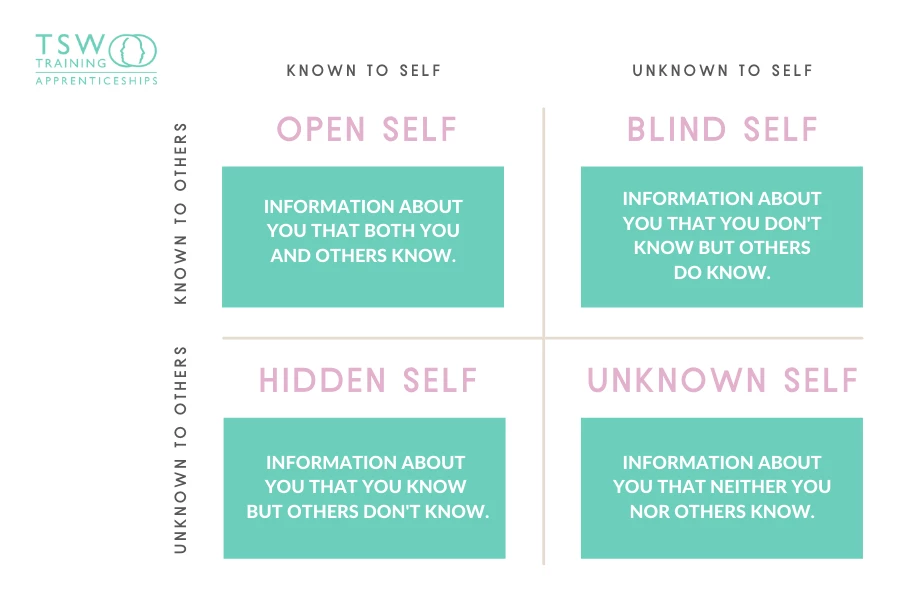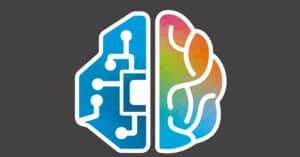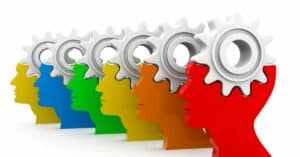Self-awareness is the ability to recognise and understand your own thoughts, feelings, and emotions.
It’s a key part of emotional intelligence because knowing yourself and how you impact others will help you maintain strong relationships, build trust, improve communication and a range of other “soft skills”.
⏰Key Points:
- Self-awareness is described as “the ability to recognise and understand one’s own emotions, thoughts, and values, and how they influence behaviour.”
- It can be categorised into two types: internal self-awareness and external self-awareness.
- There are various tools you can use to measure your own self-awareness, such as the Johari Window or the Core Values Index (CVI).
Self-awareness explained
There can be some confusion between consciousness and self-awareness, however. The former is an awareness of your body and environment, while the latter is acknowledging that awareness.
For example, infant humans are conscious as they are aware of their own existence. But they don’t become self-aware until they can recognise themselves in the mirror and separate their own thoughts from others’ opinions.
One perspective on self-awareness can be found in an article by Harvard Business Review, which defines self-awareness as “the ability to recognize and understand one’s own emotions, thoughts, and values, and how they influence behaviour.”
The article also identifies two types of self-awareness: internal self-awareness and external self-awareness.
What is internal self-awareness?
This refers to the ability to understand your own thoughts, feelings, and emotions, as well as how they impact your behaviour.
This type of self-awareness allows you to identify patterns and to better understand the motivations behind your actions.
💡Pause for thought💡
A colleague used to have an answering machine, I’d call and get the response:
Hi, this is Garry and I can’t take your call right now, so I have 2 questions, who are you and what do you want?”
Then a pause…
“And if you think they are banal questions, just think, most people go through life and don’t answer either one,”
What is external self-awareness?
On the other hand, external self-awareness refers to the ability to understand how your behaviour and emotions are perceived by others.
This type of self-awareness allows you to see the impact you may have on other people, and to take that into account in your interactions.
The importance of self-awareness has been known for centuries and there are many different theories and methods you can use to better understand yourself and help your team do the same.
The Johari Window
One self-awareness tool you could work on with your team is the ‘Johari Window’, which was first developed by Joseph Luft and Harrington Ingham in 1955.
It could be implemented as a group exercise or as a one-to-one review – it is a simple model that divides a person’s characteristics into four “panes”: open, hidden, unknown, and blind.
- Open: Represents things that are known to both the individual and others. Greater self-awareness means adding to this space.
- Hidden: Indicates what is known to the individual, but not to others. This area is likely to be fuller for new-starters and may potentially contain sensitive topics that the individual does not want to discuss.
- Unknown: The things that are not known to the individual or others. This is the area that can fuel self-improvement – is there anything here that would be beneficial to implement as a leader?
- Blind: Signifies things that are known to others, but not to the individual. For example, your colleagues might describe you as articulate, which was not something you’d noticed about yourself.
Are low levels of self-awareness a problem?
It can be. Low levels of self-awareness can lead to difficulties with decision-making, adaptability, interpersonal skills and more.
Mastering your emotional intelligence and in particular your self-awareness can lead to personal growth and development.
However, being too intent on either internal or external self-awareness can also cause problems. For example, in the case of internal self-awareness, you could end up becoming so sure of yourself that you aren’t willing to take on feedback.
Conversely, being too focused on external self-awareness can mean you fixate on pleasing others and ignore your own wants. It’s important to strike a balance.
Not sure how well your self-awareness measures up? Take our free EQ quiz and get your complimentary report.
💡Knowing yourself means:💡
- Understanding who you are and what you want to accomplish. Authenticity is important in leadership in order to build trust and maintain good relationships.
- Valuing others’ opinions so you can build better relationships and adapt to the needs of your team.
- Realising why you do what you do. This will improve your confidence and help you communicate your reasoning to others.
Techniques for developing and improving self-awareness and emotional intelligence.
Here are a few strategies you can use to develop internal self-awareness:
- Attend an emotional intelligence training course: Our brand new “Master Your Emotional Intelligence Course“, delivered by our highly knowledgeable trainers, will help you develop an understanding of the essential elements of emotional intelligence and how they contribute to your success, including self-awareness.
- Core Values Index (CVI): This assessment helps you identify your core values and how they influence your decisions and actions.
- Practice mindfulness: This involves paying attention to your thoughts and feelings in the present moment, without judgement. You can do this through meditation, yoga, or simply by taking a few deep breaths and focusing on your breathing.
- Keep a journal: Writing down your thoughts and feelings can help you better understand them. You can use a journal to reflect on your emotions, track your progress, and identify patterns in your behaviour.
- Seek feedback: Ask friends, family, co-workers or a therapist for honest feedback on your behaviour and how it impacts others. This can give you valuable insight into how you come across to others.
Understanding the impact you have on others you could:
Regularly seek feedback from those who know you well and whose views you respect.
- Take personality tests: Personality tests, such as the Myers-Briggs Type Indicator (MBTI) or the Insights Discovery, can help you and your team understand each other’s strengths, weaknesses, and preferences.
- Social Styles Assessment: This assessment helps you understand your social style and how you can adapt your communication and behaviour to better interact with your team.
*It’s important to keep in mind that no test or assessment is definitive, and it’s always a good idea to approach them with a healthy dose of cautiousness while remaining curious. Self-awareness is a journey and not a destination, and it’s something that you can continue to work on and improve over time.
What is clear though, is that being self-aware and working on your emotional intelligence is crucial for leading a happy and fulfilled life. It allows you to understand yourself better, recognise your strengths and weaknesses, and navigate the world around you more easily.
Plus, you’re constantly learning and growing as a person. And who doesn’t want to be the best version of themselves?
Additional resources and further reading on the topic.
Here are a few books that might be helpful for learning about self-awareness:
- “The Power of Now” by Eckhart Tolle – This book focuses on the concept of living in the present moment and developing mindfulness as a way to increase self-awareness.
- “Man’s Search for Meaning” by Viktor Frankl – This book is a memoir of the author’s experiences as a concentration camp inmate during WWII, and how he used meaning-making as a way to survive the ordeal.
- “The 7 Habits of Highly Effective People” by Stephen Covey – This book offers a comprehensive approach to personal and professional development, including the importance of self-awareness in building effective relationships.
- “The Art of Possibility” by Rosamund Stone Zander and Benjamin Zander
- “The Untethered Soul” by Michael A. Singer
- “The Inner Game of Tennis” by W. Timothy Gallwey
- The Top 10 Books & Other Resources About Emotional Intelligence – recommended reading by Matthew Channel, TSW Training








